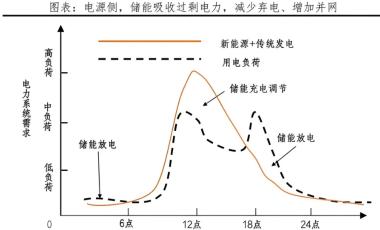Share to
The importance of energy distribution and storage in the field of energy is increasingly prominent, especially in the power system, where it can provide various services and create significant economic value. The profits of
industrial and commercial energy storage mainly come from the operation of energy storage systems and electricity arbitrage. Through the charging and discharging function of the energy storage system, users can charge during low electricity prices and discharge during high electricity prices, achieving electricity arbitrage and obtaining considerable profits. In addition, energy storage systems can provide additional value to the power grid, such as ensuring power supply, reducing power losses, and optimizing grid operation, which further promotes the profitability of distribution and storage.
1、Regarding the revenue model of industrial and commercial energy storage, it mainly includes the following aspects:
1. Peak valley electricity price arbitrage: This is one of the most common profit models for industrial and commercial energy storage. Charging during periods of low electricity prices and discharging during periods of high electricity prices, thus utilizing the difference in peak and valley electricity prices in the power grid to achieve profits.
2. Demand side management: By participating in the electricity demand response market, using energy storage systems to smooth the load curve, reduce load demand during peak periods, and adjust electricity consumption according to grid instructions, relevant subsidies can be obtained.
3. Participate in electricity market transactions: Energy storage power stations can act as independent market entities, actively participate in electricity market transactions, and achieve profits through the buying and selling of electricity.
4. Auxiliary service market: Providing auxiliary services such as frequency regulation and backup to the power grid, which are crucial for the stable operation of the power grid. The energy storage system can quickly respond to the dispatch instructions of the power grid, thereby obtaining corresponding service fees.
5. Renewable energy integration subsidies: When used in conjunction with renewable energy facilities such as wind and solar, it helps balance intermittency and volatility, improve overall energy utilization, and may also benefit from government subsidies or tax incentives. In addition, some regions also provide capacity electricity subsidies to energy storage power stations to encourage their construction and operation.
6. Improvement of power quality: Energy storage systems can improve power supply quality, such as providing voltage support and reactive power compensation, creating a favorable production environment for enterprises and indirectly enhancing their economic benefits.
2、 The advantages of industrial and commercial energy storage are mainly reflected in the following aspects:
1. The energy storage system can flexibly adjust the charging and discharging strategies according to actual needs to adapt to different market demands.
2. In the event of a power grid failure or outage, the energy storage system can serve as a backup power source to ensure that the normal electricity needs of industrial and commercial users are met.
3. Compared with traditional generator sets, energy storage systems have faster start stop speeds and can quickly respond to grid demand.
4. By using peak valley arbitrage and demand response methods, the electricity expenses of industrial and commercial users can be effectively reduced.
5. The energy storage system optimizes the allocation and use of energy, reduces the consumption of fossil fuels, improves energy utilization efficiency, and reduces energy waste.
6. Many countries and regions have provided policy support for energy storage projects in order to promote the development of renewable energy and energy conservation and emission reduction.

3、 In terms of specific operational steps, the following key steps need to be considered when implementing industrial and commercial energy storage projects:
1. Conduct in-depth research and analysis on the electricity demand, pricing structure, and grid conditions of industrial and commercial users, evaluate the feasibility of energy storage projects, and reasonably determine the capacity and type of energy storage.
2. Based on the preliminary research results, design a technical solution for the energy storage system, including energy storage scale, type, and charging and discharging strategies, and select suitable energy storage technologies and equipment suppliers.
3. Calculate economic indicators such as investment return rate and payback period to ensure the feasibility of the project.
4. Submit energy storage project applications to relevant departments and handle necessary approval procedures.
5. Purchase energy storage equipment according to project requirements, and complete installation and commissioning.
6. Collaborate with a professional team to complete the debugging and operational testing of the energy storage system to ensure its normal operation.
7. According to the requirements of the local power grid company, complete the grid connection procedures to ensure that the energy storage system can safely and effectively interact with the power grid.
8. Develop operational management strategies for energy storage systems, establish a comprehensive operational management system, including charging and discharging plans and maintenance plans, and implement daily operational management. Regular inspections and maintenance should be conducted to ensure the long-term stable operation of the system.
9. By utilizing advanced monitoring software to track the performance of energy storage systems in real-time, we continuously optimize our operational strategies to maximize their economic benefits.
The successful implementation of commercial energy storage projects requires comprehensive consideration of multiple factors to ensure smooth connection between each link. And with the advancement of technology and changes in the market environment, it is very important to continuously monitor the latest development trends and technological innovations.

